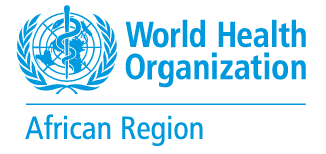World Health Organization (WHO) Strengthens Field Presence and Support to Cholera Response During High Level Visit to Kwanza Sul and Benguela
As part of ongoing efforts to support Angola’s fight against the cholera outbreak and to reinforce regional health systems, the World Health Organization (WHO) Representative in Angola, Dr Indrajit Hazarika, conducted a field mission to the provinces of Kwanza Sul and Benguela this week. The visit served to strengthen collaboration with local authorities, highlight WHO’s decentralized support across the country, and follow the high-level visit of the United Nations Deputy Secretary-General, Amina Mohammed.
The field mission began in Kwanza Sul, where Dr Indrajit met with the Provincial Governor and the Provincial Director of Health. During the meeting, WHO expressed its appreciation for the province’s leadership in cholera response and for the continuous support to the WHO office in Sumbe. Discussions also focused on broader areas of collaboration, including expanding health coverage, and improving emergency preparedness.
The delegation then proceeded to Benguela, where it joined a high-level visit led by the UN Deputy Secretary-General, the Minister of Health of Angola, and the UN Resident Coordinator to assess the province’s progress in responding to the cholera outbreak. The visit included a tour of the Cholera Treatment Center at the Municipal Hospital of Benguela and a stop at the mobile health clinic at the Lobito train station, which is extending care to vulnerable populations along the Lobito Corridor.
Benguela has been one of the most affected provinces since the cholera outbreak began, at one point reporting over 100 cases per day. Thanks to strong leadership by the provincial government, a multisectoral approach, and support from WHO, UNICEF, and other partners, the situation has markedly improved. As of this week, the province reported fewer than 50 cases per day and some days registering zero deaths. The WHO Representative commended the efforts of provincial authorities, health workers, and frontline responders for this remarkable turnaround.
“This progress is a direct result of local leadership, strong coordination, and collective action,” said the WHO Representative during the visit. “WHO is proud to stand with the Government of Angola—not just at the national level, but with teams embedded in provinces like Benguela and Kwanza Sul—working every day to respond to emergencies and strengthen the health system.”
WHO’s support to Angola includes the deployment of emergency response teams, technical guidance for case management and surveillance, coordination support, and the delivery of critical medical supplies. WHO has also facilitated the deployment of Emergency Medical Teams from Portugal and Germany to reinforce the response in Benguela.
The visit highlighted the importance of a whole-of-society response to cholera, one that not only treats the disease but addresses its root causes: lack of access to clean water, sanitation, and health services. The WHO Representative reaffirmed the organization’s commitment to supporting Angola’s long-term goals of disease prevention, health system resilience, and universal health coverage.
“Cholera thrives where development is lacking. We must not only stop this outbreak—we must prevent the next one. That means investing in primary health care, water and sanitation, and strong surveillance systems,” the WHO Representative emphasized.
As the response continues, WHO remains a key partner to the Government of Angola and will continue to work hand-in-hand with national and provincial stakeholders to protect lives and build a healthier future for all Angolans.
Distributed by APO Group on behalf of WHO Regional Office for Africa.


